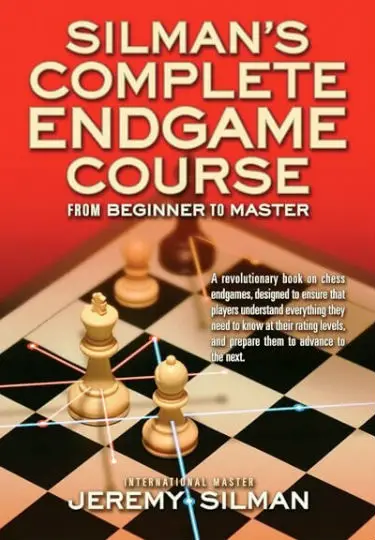
They get 10 or 15 minutes to work alone, 10 minutes to compare their answers with a friend, and then we go over the answers together in the remaining 15-20 minutes. When I'm overwhelmed with work (or just so caught up in whatever stupid thing that I haven't prepared a lesson), my favorite quick fix is to give students a photocopied page of six Cheng problems. I include this book out of personal laziness.
#BEST CHESS BOOKS FREE#
I'm sure there's some gems I'm leaving out please feel absolutely free to leave a comment with your favorites!ġ0. Why? Because great teacher-authors seem to consistently write great books. I should say upfront that my personal top ten list is heavily skewed in favor of a few authors. For whatever reason, they just don't work for me, in my classroom. For example, nothing by Yasser Seirawan made the cut, although his books for beginners are quite appropriate for both adult and young adult readers who want to teach themselves the basics of chess strategy. The teacher-focus also means that some excellent books for beginners are omitted.

In addition to giving my thoughts about each book, I often try to describe how I translate these into 45-minute (or longer) classes. This means they will have material that can be translated into lessons- ideally into lessons with multiple parts: warm-ups, direct instruction, practice, extended thinking, etc. Let me be clear that I am choosing these books specifically for teachers who give group and private lessons. I also enjoyed and learned quite a bit myself from these books, and so I also hope a reader with no interest in teaching might get something useful from reading them. In doing so, I'm noticing how much I steal from a relatively small collection of books this gave me the idea to write an article detailing which ones these are, in the hopes that the list is useful to other chess teachers. This week I've been getting ready for the new school year, trying to plan (roughly) my year's curriculum. I work in a public junior high school in Brooklyn NY, teaching a mixture of chess and eighth grade English.
#BEST CHESS BOOKS PROFESSIONAL#
Most strong players have had a chess teacher at some point in their lives, and many players, even those who aren't professional educators, teach chess in some form or another. To my mind, one of the most organic social aspects of chess is teaching, and lately I've been noticing how widespread it is. Of course I enjoy the social parts of chess as well, and they do exist. Playing a tournament game at a slow time control, secure in the knowledge that no one is even allowed to talk to me, is probably (honestly) the only time I'm actually relaxed around other people. Photo Betsy Dynako One of the things I love the most about chess is its profoundly anti-social nature.


 0 kommentar(er)
0 kommentar(er)
